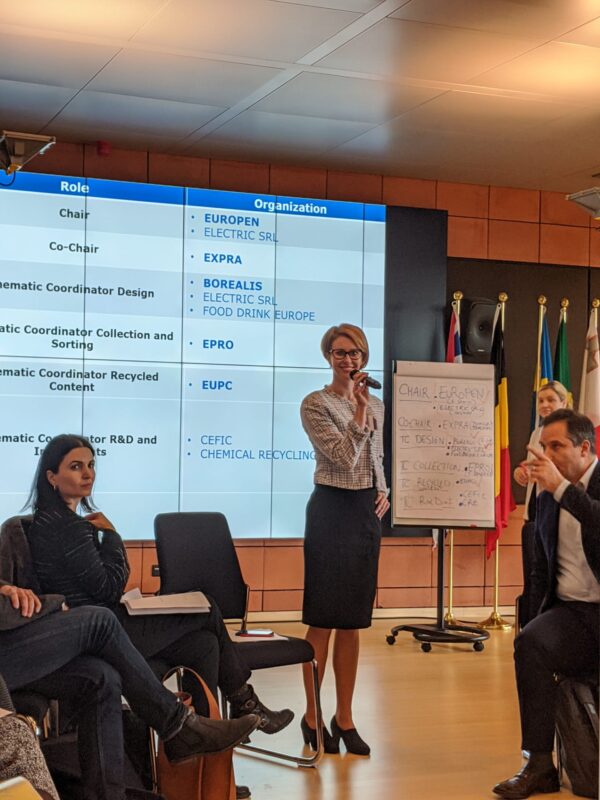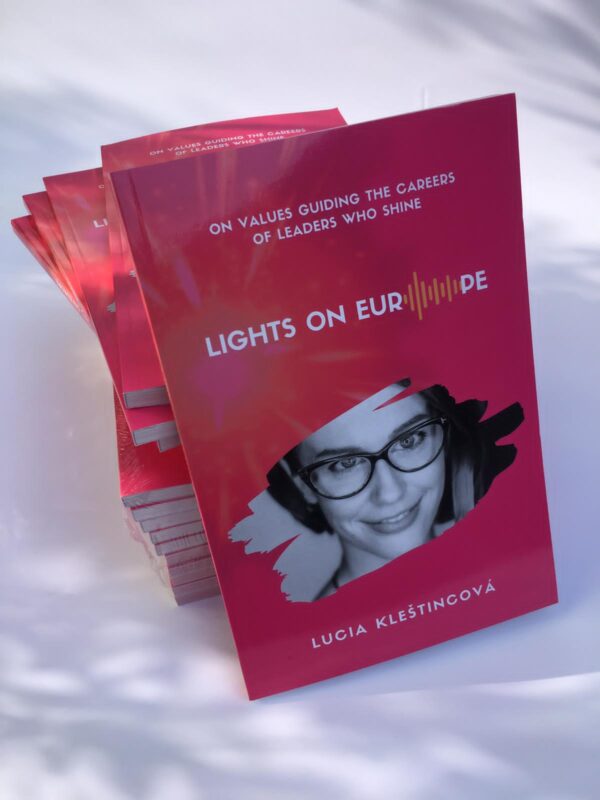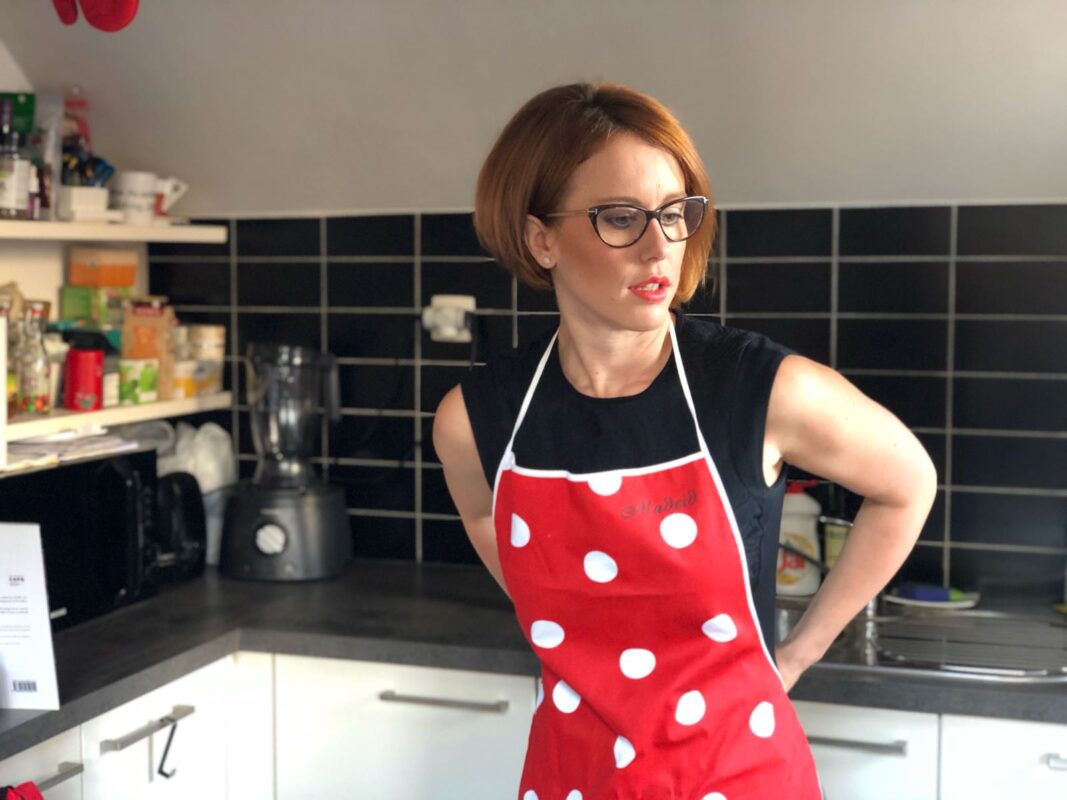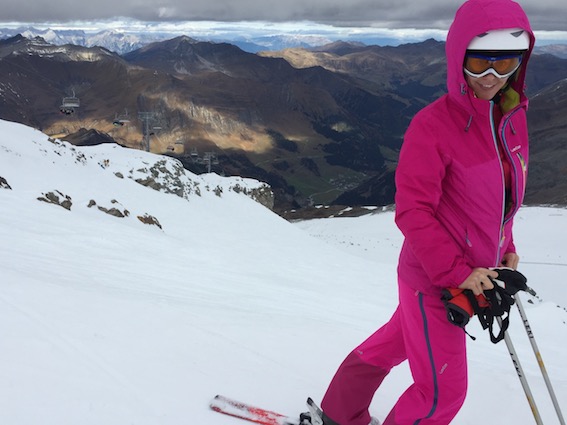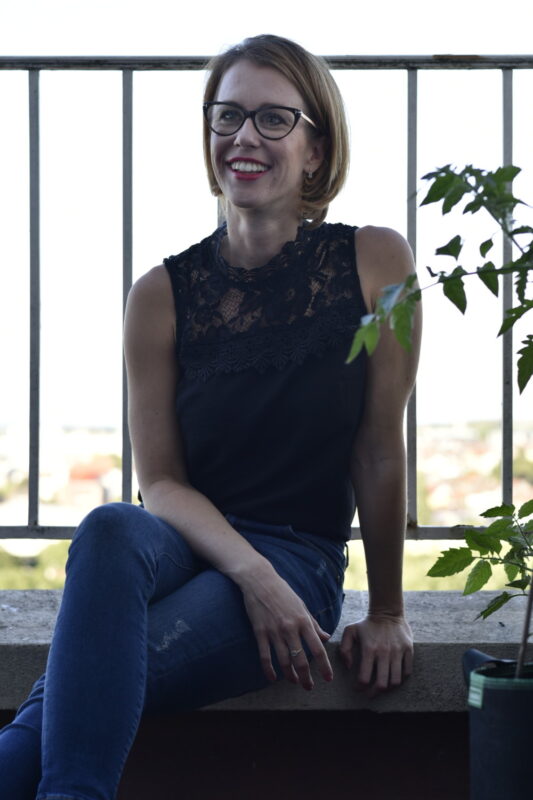Meet Lucia Klestincova, a European policymaker, member of the Equality Task Force of the Commissioner for Equality Helena Dalli, career coach, speaker, moderator, and podcast host standing for the transformation of the European & global leadership via feminine values.
Who is Lucia Klestincova? Define yourself
I am a stand for transformation of the EU via a new culture of feminine leadership. A Slovak based in the EU capital Brussels, a European policymaker, Lights on Europe podcast host, founder of several women networks and a career coach of emerging leaders aiming to amplify their impact without selling out on their soul. They say that the light I carry in my name has become my ultimate signature: maybe you will also see it if you check out my YouTube channel or podcast Lights on Europe - and experience me interviewing guests from behind the scenes of the EU bubble. The best of their wisdom is captured in my book on values guiding careers of leaders in Brussels. I am grateful for all the collaborations that it made possible with changemakers who also love exploring how inner alignment work becomes a fuel for outer impact.
“My recipe for this kind of success is filled with courage to stretch yourself and the boundaries around you, kindness towards self and others, and the ability to surrender once you’ve done everything you could to serve the cause you came here to serve”
How were you as a kid?
Unstoppable. Curious. Little sponge exploiting every opportunity to experiment, learn, experience new adventure. Not sure if that is too different from other kids… I was blessed to receive education that taught me discipline without stifling the sense of possibility. The strongest belief I grew up with was that we can become anything if we put in the intention and daily commitment. So, I spent my weekdays at school or gym, training to become a gymnast, ballerina and later synchronised swimmer. Like in many families in our region, our weekends were dedicated to time with extended family spread across the country - I loved those sleepovers at my grandparents, time in the nature, embracing gardening, traditional recipes, and crazy play with my cousins.
You were born in post-communist Czechoslovakia, did that fact shape your life?
Very much so. An entire generation grew up in the 90s filled with a possibility of nurturing a new-born democracy, a sense of transformation in the air and the EU membership as a light at the end of a long dark tunnel of autocracy, limitation, crimes against human rights and economic freedoms. This vibe is what underpinned my early engagement in civic activism. As a teenager, I became a student rep, organised campaigns for higher election turnout of first-time voters and ultimately moved on to studies of international and European affairs.
You have a Master’s in International Economic Relations at University of Economics in Bratislava and another one in Public Management and Governance at London School of Economics and Political Science. Why did you choose those courses of study?
As I said, the first one was a natural consequence of my early interest in possibilities offered for Slovakia by collaboration within a larger EU community. My early internships and career experiences from the worlds of public administration and strategy consulting reaffirmed my passion for bridging - of the worlds that do not always share the same language (like bureaucracy and business), of communities that do not always have collaboration as the default modus operandi, of complex areas of society that require a special bird’s eye view to understand their dynamics. So, my second master was a means to take my expertise in governance and public affairs to the next level. It wasn’t an easy decision to take, and it was definitely the hardest year back then - but it was a powerful school of life that I’m building on daily ever since.
You have worked for the European Commission for almost 8 years in different positions - on digitalization & skills in tourism, e-procurement, industrial ecosystems and now as Member of the Equality Task Force of the Commissioner for Equality Helena Dalli. What have you learned over the years working for European Union?
The art of creating compromise solutions that are sustainable and inclusive. The magic that’s possible when you bring together the most committed public servants from 27 countries. The transformation that’s needed to make this complex machine move forward, aligned with the global trends and values of individuals the system is serving. It’s a fine balance that one needs to find in order to fit into the European institutions. On the one hand we love embracing one's own passion for public policy and talent for innovative creations. On the other hand, we need the ability to navigate this complicated system built on strict rules and accountability structures - ruled by top politics as well as bottom-up requests of citizens and communities.
“For me, the beauty of feminine leadership is in being, caring, listening, nurturing, enabling, creating with lightness and inclusiveness”
In simple words, what do you do in the European Commission, your activities, the impact of your role, etc.?
My days are split between Brexit, equality, and all kinds of management tasks. First, having coordinated the preparations for the withdrawal of the United Kingdom from the EU since the Brexit referendum, we are now in the final phase of managing its consequences and setting up the new relationship. Second, my stand for being the voice of feminine leadership got me involved in making sure that we incorporate the values of equality and diversity in every piece of EU legislation. Third, as mentioned above, I am great at bridging topics, talents, techniques - so I am often asked to coordinate various projects aiming to transform how we work or create new approaches to traditional policy themes.
You are involved in other activities as Life Coach & Mentor and have a podcast, you wrote a book, tell us more about these projects.
I am committed to shining more light on the human story behind the story of the so-called Brussels bubble of EU institutions and opening up a conversation about the new quality of leadership needed for the EU to continue serving at its best. That is what I do as a podcast host, author and coach. Lights on Europe podcast offers interviews with leaders sharing more about their commitment to service and inner work, which makes that outer impact possible. I have summarised the best of the first series of 60+ interviews in the book on values guiding careers of leaders who shine Lights on Europe. It has become a bestseller guide for emerging leaders trying to understand more about the EU policy careers and how to stay true to their values and purpose while advancing up the ranks. I also support many of them as a coach and mentor, empowering meaningful expansion of their career and projects for greater social impact.
You are globally recognized as the voice of transformation of the EU via a new culture of feminine leadership. You are a European policymaker, podcast host, founder of women networks and a coach of emerging leaders exploring inner work to leverage their outer impact. What´s the recipe for your success?
Your question makes me laugh because I have just released a new series dedicated exactly to this: debunking the myth of ‘success’, the fear of failure, the illusion that we are brought up into believing that happiness depends on our performance and its assessment by ‘authorities’ around us. If we consider the mainstream understanding of what success is, that is not what I strive for, really. My goal is the path - of rediscovering my voice to become a more authentic expression of what I stand for; of realigning my talents and passions to be able to create with ease and joy; of walking that path with other beautiful people who inspire each other in becoming better versions of themselves. My recipe for this kind of success is filled with courage to stretch yourself and the boundaries around you, kindness towards self and others, and ability to surrender once you have done everything you could to serve the cause you came here to serve.
“My career decisions are much more about honoring my own gifts, serving my higher purpose, and consciously choosing who I wish to collaborate with on that journey”
What are the do and don´t in feminine leadership?
For me, the beauty of feminine leadership is in being, caring, listening, nurturing, enabling, creating with lightness and inclusiveness. Hence, the do’s are all about the ability to slow down and tune into what it means for you. What are the self-care practices that allow you to tap into that knowledge and sustain that way of being when you need it? On the other hand, the don’ts are all about the pressure that has us stay in the masculine way of doing - pushing for over delivery, often at the cost of our health, inner peace, and the quality of connection to self and others. As women, we have all experienced that feeling at the end of a tough workday, needing to shed the armour, leave the ‘top executive’ outside the door and just embrace the gentle fairy within, who is often pushed to the corner in harsh corporate cultures.
Do you have any philosophy that guides your career decisions?
Not a fixed philosophy per se, because the way I approach my career has profoundly transformed over the past years. It has always been very important for me to work for and with people who are inspiring visionaries, who I will be proud of contributing to and learning from. With experience and time, I am also much clearer on what kind of projects I want to be involved with because they fit the larger vision I have for my life; and very importantly, which is the role I should play in the team to make the best use of my talent and create with a sense of flow. Many of us have been brought up thinking we have to prove ourselves - by overdelivering, pushing through pain (physical or mental fatigue or suffering) and living up to the ‘system’s’ expectations even if it was at the price of one’s own well-being or even personal values. I am no longer playing that game. My career decisions are much more about honoring my own gifts, serving my higher purpose, and consciously choosing who I wish to collaborate with on that journey.
What does a normal workday look like for you?
I wonder what is the new normal since the lockdown has started and we all work from home… Like for most of us, it is a day spent with laptop in my lap - jumping from one call with colleagues and other institutions to another, dealing with emails in between and making sure that everybody has the necessary information to advance with all the policy initiatives we’re trying to create to alleviate the impact of the pandemic. In addition, I am frequently speaking at events dedicated to the equality and women empowerment agenda I work on, and at networking or career events of young professionals exploring their opportunities in the world of EU policy. I always make sure to create time for sports and self-care routine before my workday starts, to cook a healthy lunch and ideally go to nature at least a couple of times a week.
What do you love most about your job? & what is the most difficult part?
As is often the case if we love growing through learning, the best parts are often the most difficult ones. For me it’s the diversity of people, complexity of topics, volatility of what’s going on in the world and of the public opinion… On a daily basis, you will find yourself working with colleagues from over twenty countries - which brings beautiful insights but also challenges your intercultural literacy, flexibility and kindness. Diversity creates amazing potential for unheard-of idea generation but also for misunderstandings - if you realise that most of us work in two to three languages, none of which are our mother tongue. Another amazing challenge comes from the definition of policy making - designing inclusive and long-term solutions to the most serious problems of our society, all in the context of complicated politics, pressures of various interest groups, and changing public opinion throughout the political cycle.
“The most empowering shift I did throughout my career was learning to really manage it as MY career and not somebody else’s expectations or following the established path”
What is one strategy that has helped you to grow in your professional ladder?
Rediscovering myself. Reconnecting with my long-forgotten talents, passions, and the higher meaning of what I came here to serve. Reigniting the courage to embark on sometimes very out-of-the-box experiments, which allowed me to test careers and positions where I feel most aligned and fulfilled. The most empowering shift I did throughout my career was learning to really manage it as MY career and not somebody else’s expectations or following the established path.
What do you like to do in your spare time?
Recharging and creating. My most favorite time of the day is my morning before work starts - making use of the magical time before the city wakes up by doing my yoga or jogging in a nearby forest. Thanks to discovering various practices that allow me to get in a creative flow, I love creating pockets of time which I dedicate to effective ‘play’ with my creations. This can be writing, creating new coaching content, YouTube interviews or my podcast Lights on Europe.
Many authors say women can and must strive to have everything – a shining career, a blossoming family life, and a perfectly balanced lifestyle all at once, others point out that– then women are placing unrealistic expectations on themselves if they believe they can have it all, I don´t know if you are married and have kids, so according to your experience, what do you think about these statements?
I believe women can have it all - if they are empowered to define for themselves what ALL means for them. I trust the key to happiness is having access to tools that allow us to become creators of our lives - instead of taking on generic ideals as a given and then struggling. Not only if they seem unreachable, but also and more importantly, if they don’t feel aligned with our own values and desires. I had a chance to pose the same question to one of the most powerful and admired women in the EU - executive vice-president of the European Commission Margrethe Vestager. Check out that interview on my YouTube channel if you are curious to find out how she found her peace in reconciling her top political career as a mother of three.
What are your plans for the future?
Stay on the path of reconnecting, growing, and creating; and empowering other leaders to do the same. I stand for being the voice of a new culture of leadership for the European public space, bringing feminine leadership to our policy process and creating space for soulful self-expression of those that dedicated their lives to meaningful social impact. The time’s up for expecting that public servants will leave their hearts and souls outside of the brain-led bureaucracies. I want to contribute to reuniting different types of intelligences. Whatever higher wisdom you believe in, they can all provide a priceless source of inspiration and alignment for the way we serve the public.
“Seek to surround yourselves with women who will support you in your growth, reflect with you on your journey and challenge the story you may be creating in your head about everything that’s going on in your life”
There is still the glass ceiling for women in the world: Fewer opportunities, jobs underpaid just for that fact of being a woman, etc. Have you experimented with the glass ceiling? If yes, what are the biggest challenges you have faced and how have you overcome them?
Yes, I have experienced it largely in the form of prejudice towards the responsibility that a woman like me is ready to take on, disregarding the experience and credentials I brought to the table. The reaction I received to my expression of interest for promotion was a clear signal of misalignment of our values and quality of leadership I wished to promote in that entity. It was not just a reaction to my profile but also a demonstration of how our visions are simply
What tips, can you give to young girls who want to become like you?
Seek to surround yourselves with women who will support you in your growth, reflect with you on your journey and challenge the story you may be creating in your head about everything that’s going on in your life. Instead of striving to become ‘someone’, learn to love the journey of becoming. Because that’s all there is. A process of creating your own life experience, free from the societal expectations, or the pressure you may feel when following role models on social media.
I think in your position, many people may have the wrong idea of who you are, and what do you (professionally), with this idea in mind, what is being Lucia and what´s not?
People usually have various preconceived ideas of what it means to be a European bureaucrat. I’m often told I do a great job in busting those myths when I do my public speaking gigs - showing that our careers are much more varied and that my engagement, service, and self-expression go way further than my job. And so I often face reactions acknowledging that careers in EU institutions seem much cooler and diverse; and that it’s amazing how I manage to translate that big picture expertise into my coaching practice, writing, podcasting, moderating and all the other projects I do to magnify my impact and empower more changemakers to do the same.
Who is the woman you admire the most and why?
Every woman who dares to lead her own way and inspire others with how to overcome the challenges that come with being a female pioneer. Women like Oprah, Ursula von der Leyen (the first female president of the European Commission) or Zuzana Caputova (the first female president of Slovakia). But also, many others, who may get less spotlight, although they are equally brave in living daily their commitment to being a warrior with a huge heart and integrity. I shine a light on some of them in my podcast or women empowerment workshops. Who is the woman in your life you’re ready to acknowledge today for her strength and kindness?
Name: Lucia Klestincova
Sector: EU policy, new media, life coaching
Company: European Commission
Designation: Member of the Equality Task Force of the Commissioner for Equality Helena Dalli, EU career coach, author, and host of podcast Lights on Europe
Country: Belgium
Social media:
https://www.linkedin.com/in/lucia-klestincova/

